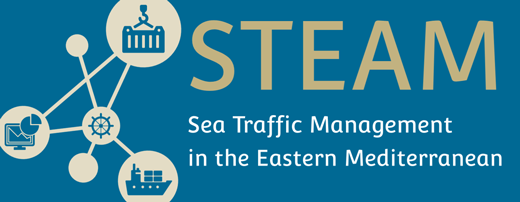Complementary book release on Maritime Informatics: Additional Perspectives and Applications
We are very happy to announce that a complementary book has just been released by Springer entitled, “Maritime Informatics: Additional Perspectives and Applications,” also edited by Mikael Lind, Michalis Michaelides, Robert Ward, and Richard Watson.
The book, published by Springer, is to be reached at: https://maritimeinformatics.org/2021/03/maritime-informatics-additional-perspectives-and-applications/
The purpose of this book is to provide further background and insights into the current status and future directions of maritime informatics from the perspective of recent practical experiences, looking at such things as the supply chain in support of global emergencies, recycling resources, and the circular economy, ports acting as multidimensional hubs, the tandardisation of data, and the emergence of data sharing platforms in the global container trade. Furthermore, this book also focuses to address contemporary movements and to tackle global concerns, complementing in this way the original book on Maritime Informatics.
Maritime Informatics can be defined as “the application of information systems to increase the efficiency, safety, and ecological sustainability of the world’s shipping industry”. The shipping industry covers 90% of the world seaborne trade movements. Maritime informatics takes a holistic approach to shipping enabling higher levels of transparency, predictability, and visibility of all transport operations connected with shipping. Collaboration within the industry starts with information sharing that can lead to improved efficiency and enhanced operations. Maritime informatics should be on the strategic decision-making agenda for all stakeholders in the shipping sector, because it embraces the full range of competencies needed to improve the energy efficiency and raise the capital productivity of the industry. In addition, it is an evolving science that can be readily harnessed to address emergent problems because it embraces a systems perspective for improving the quality of maritime decision-making, and thus increasing the safety, ecological sustainability, agility and resilience of the world’s shipping industry. By doing so, it can boost the contribution of the maritime sector to the realization of several goals within the United Nations’ 2030 Sustainable Development Agenda.
STEAM (Sea Traffic Management in the Eastern Mediterranean) is a three-year project that has started in Jan. 2019 with a budget of approximately one million EUR and coordinated by the Cyprus University of Technology (CUT). The primary goal of STEAM is to develop the Port of Limassol to become a world-class transshipment and information hub adopting modern digital technologies brought to the maritime sector, as well as a driver for short sea shipping in the Eastern Mediterranean.
To keep updated on the developments of maritime informatics visit the website at www.maritimeinformatics.org or join the LinkedIn group of maritime informatics at https://www.linkedin.com/groups/12477137/
For more information on the STEAM project, please see https://steam.cut.ac.cy/
Contact: Michalis Michaelides, Assistant Professor, Department of Electrical and Computer Engineering and Informatics (michalis.michaelides@cut.ac.cy )

